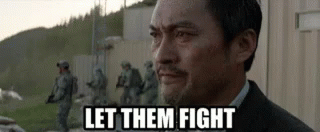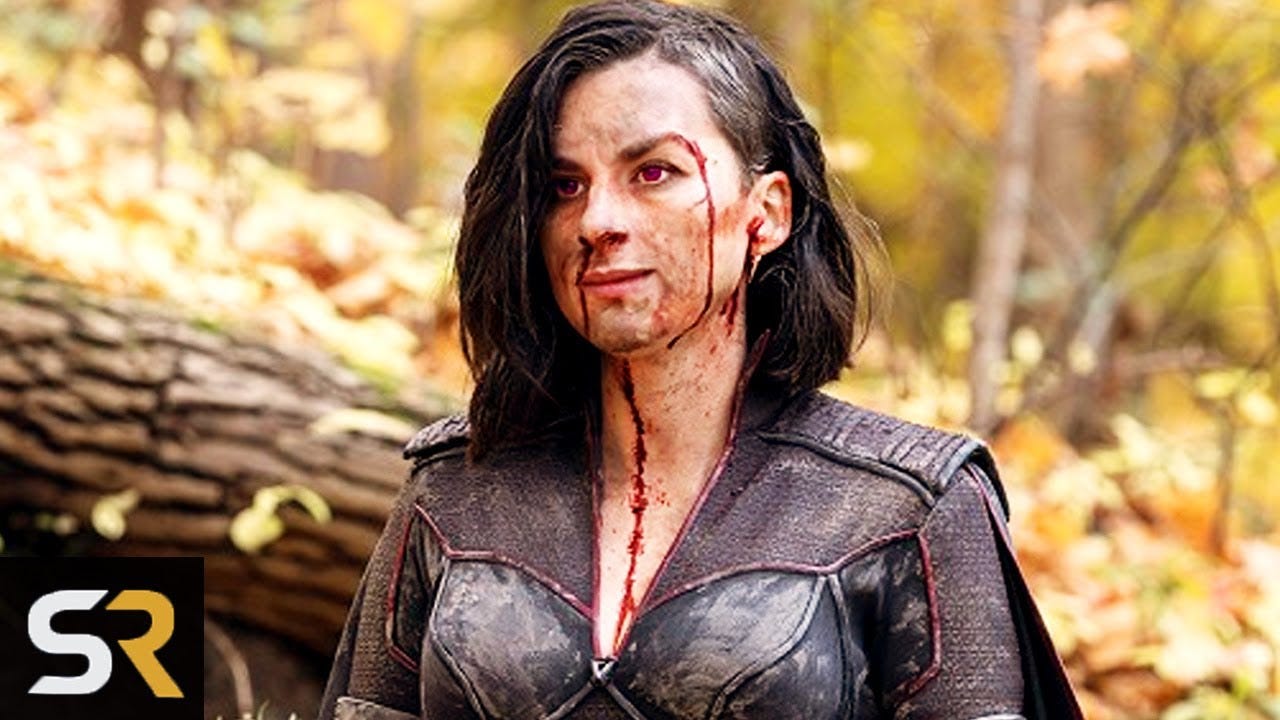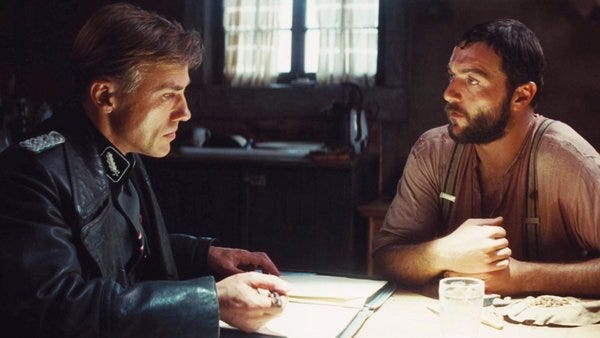Indy 5 and the Irrelevant Nazis
Fascism is a problem right now. But you couldn't tell from Indiana Jones.
You can find an index of all my substack posts on fascism here.
Last week I wrote a piece about Indiana Jones and the Dial of Destiny for MSNBC. I argued that Hollywood tends to treat Nazis as anonymous supervillains—which does little to help us recognize or fight actual fascists in the real world.
Indy is fighting, in theory, to prevent fascism from conquering the world. But “Dial” spares little thought for the horrors of Nazism or the Holocaust. Director James Mangold is much more focused on fun chase scenes and on the mechanics of riding a horse into the subway than he is on fighting fascism. There’s a single scene in which Voller expresses racism, when he sneeringly implies a waiter isn’t really American because he is Black. But otherwise, Voller just behaves like a standard supervillain, ranting on cue and ruthlessly pursuing world domination for its own sake, without much reference to his ideological motivations. The swastika is a convenient way to label the bad guys, but as a symbol it’s a hollow one.
On twitter, inevitably, some Indy fans were upset. Some insisted we can too recognize fascist with no problem (which seems an odd thing to say post 2016 when we elected one president.) Others claimed I was…pro-Nazi? Idk. People sometimes don’t read the article, or even the headline, is the takeaway there I guess.
There was one bit of evidence for my thesis I didn’t include, because it was a spoiler…but the films been out for a while, so I thought I’d discuss it a bit here.
A Fiendish Plot to Kill Who?
The evil Nazi in the film is Jürgen Voller (Mads Mikkelsen). Voller’s scheme is to use the Dial of Destiny to travel back in time and win World War II. He plans to do this by murdering…Hitler.
The Nazi villain,then, is obsessed with the past—he’s a relic that wants to go backwards, rather than a contemporary trying to (for example) kill trans people in the present. More, he’s a Nazi whose big scheme is to murder, not marginalized people, or antifascist leaders, but Hitler.
Nazis do often hate each other, and I’m not opposed to a bit of Nazi on Nazi violence.
But in the event, Voller never even confronts Hilter…and really, the point of the exercise seems to be precisely to make Nazi violence disappear in a kind o trick reversal. It’s never clear why Voller thinks Hitler is responsible for the loss of the war, or what policy changes or decisions Voller would reverse. He’s not even going into the past to give the Nazis the atomic bomb. It’s all just smoke and mirrors and cutesy winking. If it means anything, it just means that Nazis are buttheads (true) and that they’re irrelevant (sadly, not true.)
Building a Better Nazi Trap
Fascists actually existed, and exist. They committed (and commit) real atrocities. Mocking them is fine (good even!) But treating them as a goofy escapist plot twist seems less so. If you’re going to have your enemies be Nazis, it seems like you should have the courage to actually take a stand against Nazis.
A lot of Hollywood narratives refuse to do this. But some do. For example, The Boys, season 2 (2020) is focused on Stormfront, a supervillain Nazi. She uses ethnic slurs while she murders a Japanese hero, and she spreads propaganda about a (basically fictitious) superpowered immigrant threat. Her violence is directly linked to her racism, and both violence and racism are presented in such a way as to identify Trumpian anti-immigrant fervor as a present-day variation on Nazi rhetoric and ideology. Stormfront isn’t pining to kill Hitler in the past. She’s advancing Hitler’s goals right now—and doing it in a way that implicates Americans—some of whom are probably even Indiana Jones fans.
Inglourious Basterds (2009) is another example. The movie, set in occupied France, starts off with a Nazi interrogating a French peasant who is hiding a Jewish family under his floorboards. The peasant is an analogue for Oskar Schindler, and many another celebrated gentile (fictional and fictionalized) who rescued Jews during the war.
In this case, though, the peasant is so terrified by the Nazi’s threats that he gives up the Jewish family, who are shown dying horribly. It’s a sequence that encourages you to sympathize with the “good” gentile, and then demonstrates one way in which even decent people or “heroes” can be complicit in fascist hate. It makes you ask what you’d do if the fascists demanded your help at gunpoint. That’s a much more painful question than, “If you saw a supervillain with a swastika armband and you were the hero, would you hit them?!”
The Boys and Basterds are pulpy action narratives; they’re meant to be fun rather than (or as well as) being serious reflections like Night and Fog or Ida. But they also are committed to making you feel at least a little uncomfortable.
And I think films about Nazis should make us somewhat uncomfortable. Fascists have done great evil in the past, and are working on committing more evils right now, as I type. Defeating fascists, when they are defeated, is cathartic, and the punching Richard Spencer memes are glorious. But if you make a film in which Nazis look just like other supervillains except they try to kill Hitler—well, it starts to seem like you don’t want to talk about Nazis at all, and maybe like you shouldn’t.





